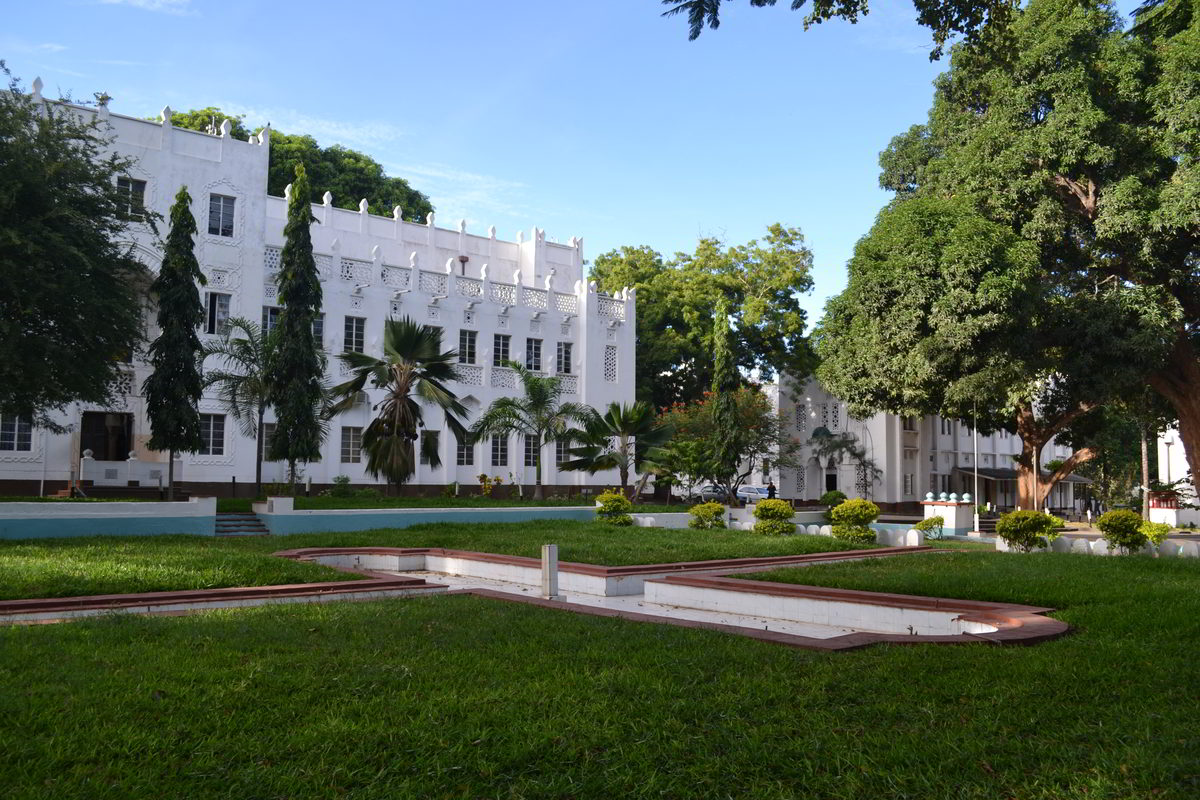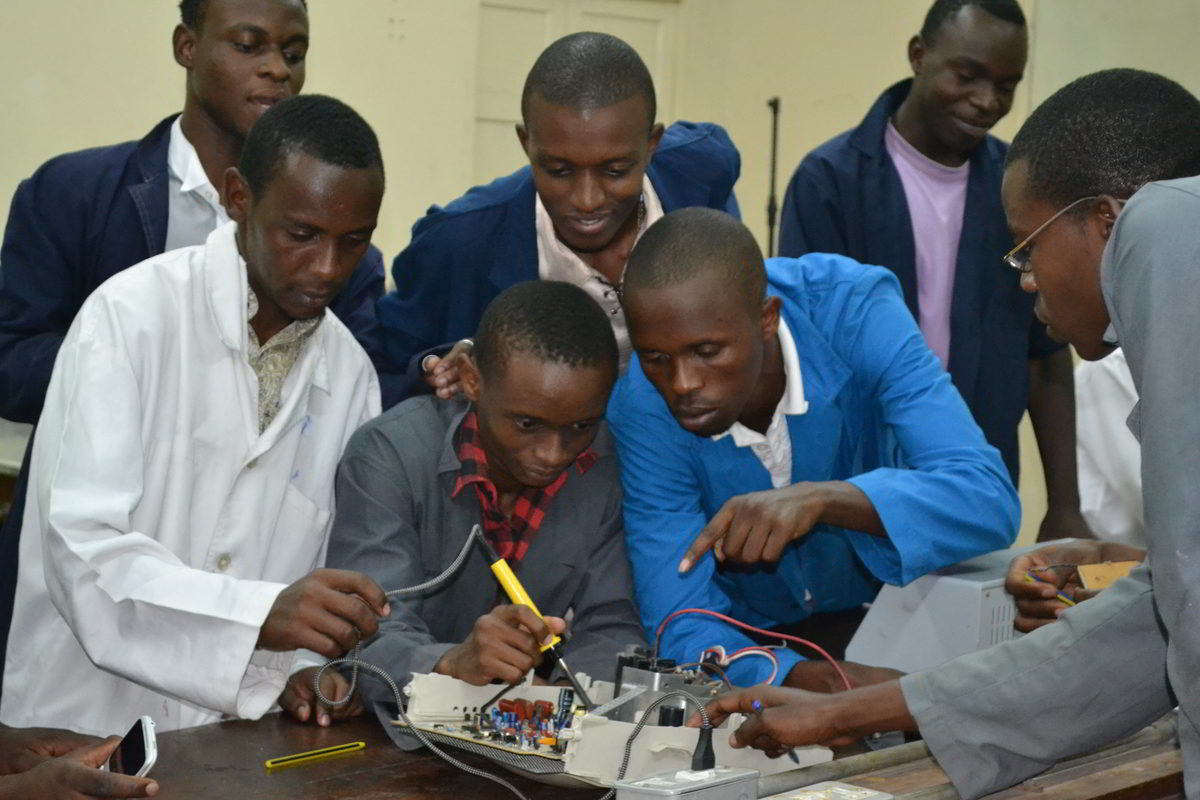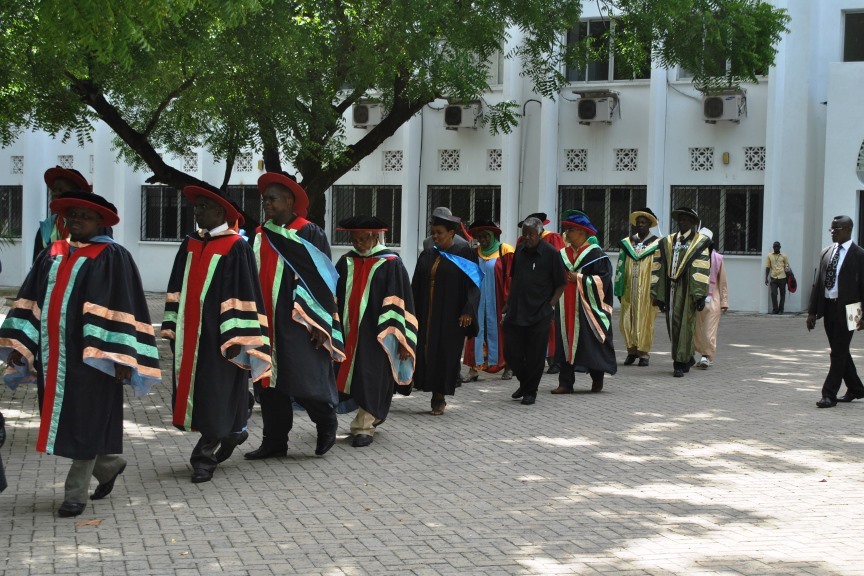The Institute of Research, Innovation and Extension (IRIE) was one of the Directorates in the Technical University of Mombasa (TUM). It was in existence even before the Institution was transformed to become the Mombasa Polytechnic University College, (MPUC) in 2009, and Technical University of Mombasa (TUM) in 2013. Guided by the University Statutes 2013, IRIE has been transformed into the office of the Registrar Partnership Research and Innovation (PRI). Its overall mandate is to coordinate Partnership, Research and Innovation programmes in TUM. Presently, the office of the Registrar PRI is under the DVC, Academic, Research and Extension, and manned by The Registrar PRI awaiting the establishment of the office of the DVC (PRI). It’s mandated is to:
- Develop and promote a research culture at the University;
- Promote innovation and Extension activities;
- Establish collaborative research linkages;
- Institute mutually beneficial partnerships and linkages;
- Promote community out-reach services and transfer of technology for development; etc.;
In achieving the above, PRI ensures:
- Ethical practice in Research;
- Protection of intellectual property rights;
- Up-holding appropriate code of conduct
PRI initiates collaboration and linkage networks, partnership and resource mobilization, research coordination, research fund disbursement, patenting and commercialization, promoting innovations and creativity dissemination of research findings and extension services, organizing exhibitions and research conferences as well as capacity building and training in research themes among others. It has three divisions; 1) Partnership and Extension service 2) Research and Publication, and 3) Innovations and Incubation center
The Technical University of Mombasa (TUM) Strategic Plan 2014-2018 identified the promotion of Partnership, Research and Innovation as key driver to socio-economic transformation of Kenya into a middle-income country based on a knowledge economy and formulated Vision 2030 as the blue print towards the said realization. Knowledge generation for innovation endeavours is one of the core functions of a university. The other being teaching and extending knowledge to benefit mankind as a whole through extension activities.
On this note, TUM has established the office of the Registrar (PRI) to provide the road-map towards embarking on the ambitious programme that promotes research for the generation of knowledge and skills useful in understanding various phenomena. The strategic goal of this department is therefore to promote research, science, technology and innovation. This goal is realized through the following two main primary objectives, with some other secondary objectives supporting the same:
1) To develop a research culture at the University, and 2) to promote partnership, innovation and extension activities.
The Research PRI department therefore:
- Presents a policy framework for the development, support and management of research at the Technical University of Mombasa, and
- Provides a strategy on how to achieve the University’s research goal.
The responsibility for implementing PRI agenda is vested with the Deputy Vice Chancellor –Academics, Research and Extension. Such responsibility is exercised through the University’s PRI Committee which functions in accordance with the authority given to it by the Senate. The office of the Registrar PRI is responsible for implementing the Research Policy and exercise institutional responsibility and functions while the Faculties/Institutes and Schools take ownership of and manage research operations. The University Council gives the general vision on research undertaking at the University.
The Research Policy Principles includes;
- Enabling work environment
- Preservation and Conservation of the Environment
- Protecting the researcher
- Protecting experimental and laboratory animals
- Ethical practice
- Fair reporting of research findings
- Intellectual property rights
With regard to Intellectual Property Rights Policy, A comprehensive intellectual property rights policy for TUM is yet to be developed; however, the TUM Research Policy has recognized this right, and proceeded as follows:
- All researchers must disclose all patentable innovations conceived in part or in whole in the course of university responsibilities or when using university resources.
- Title to such innovations are assigned to the University.
- Patent/copyright of such innovations are co-owned between the researchers and the University.
Commercialization of research outputs is governed by guidelines outlined in the intellectual Property Policy, at the moment, this is governed by the country’s intellectual property policy e.g. KIPI and KECOBO.
The aim of commercialization of research outputs is to create wealth and develop the University in line with its vision;
When it comes to the Code of conduct for research; The TUM Research Policy has outlined the Code of Conduct for Research, and outlines what constitutes Misconduct in Research;
- It fosters an atmosphere of honesty, trust and collaboration between researchers; which in-turn:
- Improves the quality and quantity of research and avoids jeopardizing the reputation of the University;
- Misconduct in research, is defined as fabrication, falsification, plagiarism or failure to deliver, and results in mistrust in research, for such conduct, appropriate disciplinary action is to be taken;
- Misconduct will not include honest error, honest differences in interpretation, or judgment of data.
- Acts of God, resulting into failure of research, have been recognized, and for which, there are no sanctions.
Concerning the Code of ethics for research; TUM has a research review committee. PRI and TUM research staff hold true to the profession as scholars which entails commitment to the pursuit of truth, an abiding dedication to the promotion of the public good, and a sustained interest in mentoring students and fellow researchers.
Alongside our efforts to maintain the ideals of scholarly integrity and academic freedom, members accept the duty to uphold the vision and mission of TUM, and to promote the interests of the greater community which the University seeks to serve and develop. Cognizant of the responsibility to the public, TUM upholds the strictest measure of integrity and the highest ethical standards to be worthy of the public trust.
Prior to 2014, the research budget the University allocated to IRIE was KES 20 Million as internal research grant. This dwindled to KES 12 Million per year subsequently. However, efforts have been made, mostly by individual university researchers, with the net result that the dwindling funding from the university has been matched through the external research grants generated. In most cases, the external research grants, returned the research budget to over KES 20 Million, but this is still a very small amount for meaningful research.
TUM’s strategic plan 2014-2018 established the objective of ensuring that research and development activities are competitive and meet high standards in every discipline engaged in at the university. TUM’s research and other creative activities ensure the fulfilment of Kenya’s national goals and the presidents BIG FOUR AGENDA, supporting Universal health, Manufacturing, Food security and Affordable housing. This is evident in the nature of research output through publication of research results, research training, the links between research and teaching and industrial/institutional partnerships. The research component is incorporated in most course programmes. Several researches undertaken are multi-disciplinary and multi-institutional in nature.
The research and development activity achievements are demonstrated by the number of publications, citations and the amount of research expenditure (internal and external). Research in TUM is a core activity integrated with learning and teaching as well as knowledge transfer. It has improved the quality of students’ education where students are able to innovate and patent their innovations. In addition, research in TUM has resulted in development of highly educated and trained masters and PhD graduate staff.
TUM strongly support student outreach by the faculty being available to provide mentorship for student projects in community and global health. The University has undertaken a wide range of events and activities to its partner schools and colleges and community at large.
TUM-community engagements have two broad purposes. First, it aims to mobilize and combine university knowledge and community experience to address social disadvantage and exclusion, to promote the idea of a fair society. Second, it complements and collaborate with the university’s service to business activities by focusing on all those areas of our daily lives that are of profound material and civic importance but which are typically seen as “non-economically productive activity”, such as caring, sustainable development, self-management of health and well-being, voluntary activity and the development of citizenship. These are all massive areas of our real lives.
Educational Activities
- Most of these activities involved work with secondary school pupils.
- Departmentally-based outreach programmes aimed mainly at schools
- Public lectures in the University for children and/or adults,
- Exhibitions, musical performances and theatre
- Guest talks to external groups
Technical expertise
Members of staff provide expertise to individual charities, community organizations and schools. This ‘social consultancy’ can, for example, take the form of:
- Being a trustee for a charity
- Conducting pro bono consultancy work for an organization
- Serving as a school board member
There are several activities which fall under the category of ‘social inclusion’, i.e. activities and services which might otherwise be provided by the voluntary and community sector. Most of the activities that fall into this category are student-run. Student-run social inclusion activities include:
- Student Community Action
- Scout and Guide Club
- Student religious groups activities
- Students CSR projects through their clubs
Facilities and Goods
Facilities can either be provided free or subsidized. They include; meeting rooms, sports facilities subsidized for local sports clubs, Donation of books, used computers etc.
Work experience/internships
The university provides opportunity for students outside the university to undertake attachment and internship in the various departments.
CSR activities
These include; Street cleaning, tree planting, food donations during drought etc.






